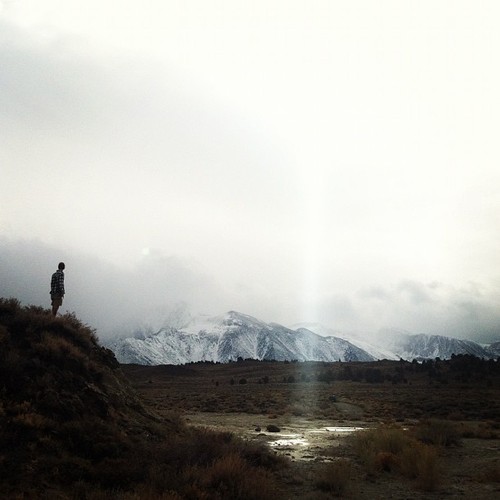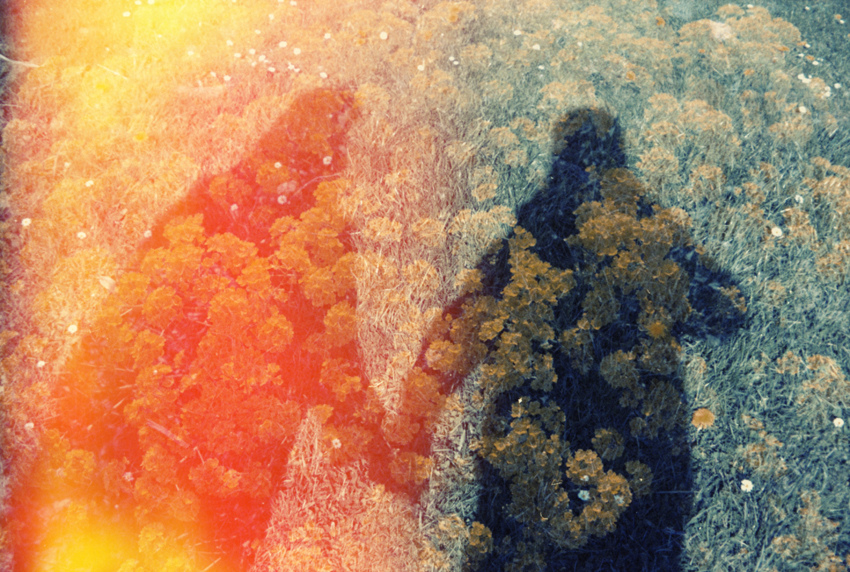Excerpts from Reb Anderson’s beautiful book on the Buddhist precepts called Being Upright (2001)
Precepts
The Sixteen Great Bodhisattva Precepts can be divided into three groups or sections: the Three Refuges, the Three Pure Precepts, and the Ten Grave Precepts. The Three Refuges express our vow to take refuge in the Triple Treasure: Buddha, dharma, and sangha. The Three Pure Precepts are vows to embrace and sustain forms and ceremonies, to embrace and sustain all good actions, and to embrace and sustain all beings. The Ten Grave Precepts teach us to abstain from killing, stealing, misusing sexuality, lying, intoxicating mind or body of self or other, speaking of others’ faults in a disparaging way, praising self at the expense of others, being possessive of anything, harboring ill will and disparaging the Triple Treasure.
The precepts are all one thing: they are buddha’s mind. They show the ways that we get distracted from buddha’s mind. Each way of distraction from buddha’s mind is also a way of reunion with buddha’s mind. The precepts show how we lean away from our Buddha nature, and they are the road back.
Co-arising
Dependent co-arising explains how suffering is born, and points to the way that freedom from suffering is realized. It is Buddha’s teaching in a nutshell. By understanding how all things arise together, you shift from viewing yourself as acting upon and realizing all things, to a new vision of seeing all things coming forth and realizing you. You change from thinking on behalf of only yourself to thinking on behalf of all things. Instead of using yourself to realize the world, you see that the world uses you to realize yourself.
When I see virtue in another, I vow to emulate it. When I see evil in another, I look to myself.
Boddhisattvas always sit at the source and watch for the time when right and wrong give birth to each other.
Help
Helping others entails learning how you are helped. In order to help others, you must learn to heal yourself. Learning how to give to yourself is part of learning how to give to others.
Bodhisattva
You become a bodhisattva by wishing for your own happiness as well as the happiness of others, and by opening to your own experience in a loving way. When you love yourself and are kind enough to yourself to be who you really are, you’re showing others what they need to do in order to be free. You’re showing them what it’s like to be present in the middle of suffering. You’re right here in the world, just like them. You know about fear and anxiety, but you don’t run away. This is the way you join hands with people and walk together through birth and death.
Conversing with mountains and rivers, with grasses and trees, with each other, with our pain and anxiety – thus we bring each other to realization. Are you in the midst of such a dramatic conversation, or are you sitting on the sidelines of life, with eyes shut and ears covered? The great show is going on, the usual characters are playing their parts. Are you listening? Are you participating?
Community
The ancestors warned us not to set up standards on our own. Without support, how do you know that you’re not just practicing according to your dispositions and going along with your prejudices? In order to practice this precept, we all need some one in our lives to whom we are accountable, someone whom we have asked to give us feedback on our practice, someone to guide us in finding a balance in the midst of our likes and dislikes.
Bow
Dogen said that when there is bowing in the world the Buddha way flourishes; when there is no bowing in this world, the Buddha way perishes.
Not seeing how all beings kindly support and sustain our virtue and goodness, it is possible to speak of our own virtue as something separate from others. You forget that it is really only due to the support of countless others that you accomplish anything of merit.
Truth arises when my truth is offered, but not placed above the truth of others.
In its root sense, respect means to look again.
As Suzuki Roshi said, “What we are doing here is so important that we should not take it too seriously.”
Good
The word translated as “good” in the original Pali is kusala, which also means “wholesome,” “virtuous,” and “skillful.” Kusala is derived from kusa, the name of a tall grass that Shakyamuni Buddha recommended for making meditation seats. The early monks would gather blades of this grass, pile them up, and cover them with their sitting cloths, thus making a good cushion for sitting meditation. The kusa grass protected the monks from crawling bugs and the crawling bugs from the monks. Those blades of kusa grass had very sharp edges, so that in the process of collecting it, you could easily cut your hands if you were not mindful and careful. Thus the skillful gathering of kusa was called kusala. The word then came to mean skillfulness in general.
Buddha
Trusting that you are Buddha does not mean that you identify yourself with Buddha. It’s not something special about you that makes you Buddha. It is simply you being you that is Buddha. It is not that you’re a virtuous person, so virtuous that you’re a Buddha, but that you being you is virtue. Maybe relatively speaking, you have a little bit of virtue or maybe you have a great deal of virtue, but that is not important. The point is that being what you are is your fundamental virtue. Even though people vary in relative levels of virtue, each of us completely possesses this Buddha virtue.
Stealing
Our fundamental human delusion is the belief that mind and object are really separate, and that self and other have independent existence. With such a belief, we have the basic mental conditions for stealing, and stealing will inevitably arise.
Not to take anything that is not rightfully intended for us. (eg. not acknowledging the help someone gave you)
The mind is innocent of all meddling and gaining ideas. If we practice thus, whatever the object is, then it will take off its mask and reveal its true face, saying, I am you, you are me.
In uprightness you can see that everything is you. If there is one thing about yourself that is obscure to you, that feels separate from you, then you will feel some dent in your wholeness, and that one small dent will force you inevitably to fill it. When you try to fill it, it will feel as if you are taking something without permission – that you are stealing. You will not understand that what you fill it with is a gift.
Separate
Once you externalize the world and feel separate from it, you feel isolated and threatened, and so instinctively you try to grasp it. This grasping creates anxiety or pain.
Sexual greed is powerful, because at its root is this deep pain of separation. We will do almost anything grab onto anyone, if we feel it will help close the painful gap and heal the wound.
The process by which we separate ourselves from others and then feel greed for them is also carried out in relationship to our own bodies or to our own sexuality. We may exclude some part of the body from our sexual experience, or identify our sexuality with just part of the body. The first step in reversing this process is to face our woundedness and greed to whatever extent they exist. Next,, we must gradually become intimate with the wound and with the greed, unless we are intimate with the greed, we are susceptible to it from inside and outside. The more we face up to our woundedness and greed, the closer we are to seeing how they arise together, and the more we are able to protect beings from the harm of sexual greed.
In such moments of great pain and anxiety, our work is to be present in this pain and anxiety. We listen to it: we do not mess with it. This is not easy: it is just necessary. We are all doing this work to some extent, but we must be thoroughgoing. We must give our whole being to it. We must give our sexuality to it. We must give our appetite to it. We must give our anger to it. We must give everything to just being totally present with whatever has come to be, completely resigned to what is happening, with imperturbable peace and composure. Fulfilling this responsibility, we actualize the great brightness, where nothing can be brought in and everything is inviolable.
Anything you actively turn away from or ignore comes to exert some influence over you. The more energetic the ignoring, the more power you give to what is ignored. The thing does not actually have this power in itself. Its power depends on your refusal to pay attention to it.
Pain
We must courageously, carefully, and steadfastly walk to the centre of our pain, sit upright, and listen to the cries of the world. We and other beings are in danger if we do not patiently face our pain and understand it. If we don’t understand it, then all of our vital energies go to fuel deluded activity. On the other hand, if we patiently observe how pain and anger arise, what their causes are, then those same vital energies will come to facilitate patience, compassion, and wisdom.
Friendly conversation
You cannot pry an obsession open or kick it out. Rather, this revelation comes through friendly conversation between you and the obsession. You practice kind speech even toward your perversity. Good morning, how are you? Ah, you feel an impulse to trash somebody today? Why is that? As a result of this friendly conversation, harmful habits of speech drop away.
Not seeing how all beings kindly support and sustain our virtue and goodness, it is possible to speak of our own virtue as something separate from others. You forget that it is really only due to the support of countless others that you accomplish anything of merit.
For bodhisattvas the passions are the fields of blessings, and walking the middle path through this field is the way of awakening.
Patience is the primary condition for enlightenment, through patience your vision clears and you see the dependent co-arising of pain, frustration and anger.
Three Gifts
There are three categories of gifts: material gifts, gifts of fearlessness, gifts of dharma. All are gifts of love. Material gifts: your possessions, your merit, even your own body. Gifts of fearlessness take several forms. The first form is to liberate beings from physical captivity, bondage, and torment. It can also take the form of releasing birds, flies or other wild animals who are trapped on endangered. Another form of giving fearlessness is to recognize another person as Buddha. Demonstrating fearlessness means being upright, willing to be who you are, and being that way so completely, full, joyfully, enthusiastically, kindly and compassionately, that others see and feel it and are inspired and encouraged to be fully themselves as well.
The third category is gifts of dharma. The precept encourages us to be free from the discrimination of this from that, self and other, and realize interdependence. Whatever would be most beneficial or liberating for beings is dharma treasure. IN all your relationships, in each moment, ask the question: what is the most precious thing that I can give right now? This is the dharma treasure.
All of us are capable of wishing to turn the sun up a little brighter.
Ultimately the precept of not being possessive is not about repressing stinginess but about giving.
Vegetables
When Suzuki Roshi first came to San Francisco to teach Zen he shopped for his own groceries. When he went to the vegetable market, he looked at the vegetables carefully, and when he found some that were damaged or spoiled, he would select those for purchase. He felt compassion for them and wanted to give them a good home in his stomach, he didn’t want to leave anything abandoned and unappreciated in the market. He could see the Buddha nature flowing into both damaged and undamaged produce. He was also abele to see this same marvelous Buddha nature in all the humans that he met. Of course he appreciated beautiful, healthy vegetables. He also appreciated beautiful, healthy humans, but when he saw damaged people, he would also fully attend to them and give them a good home.




